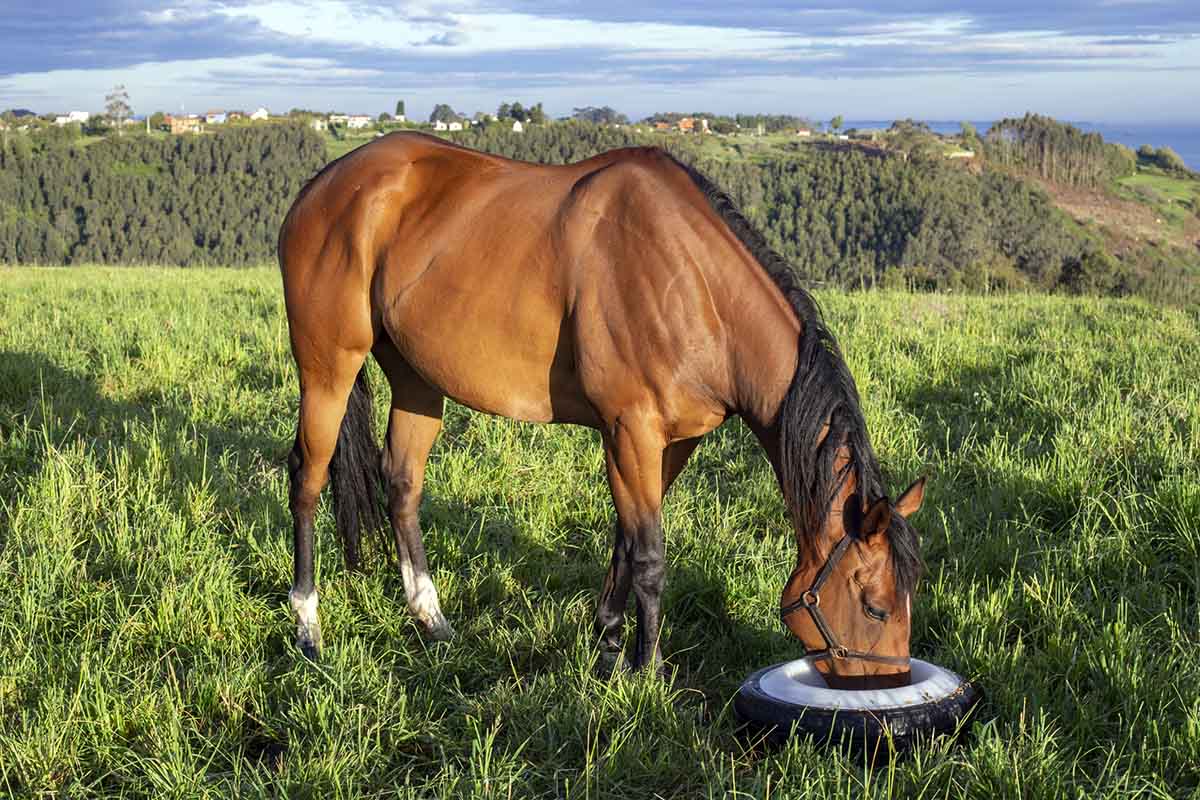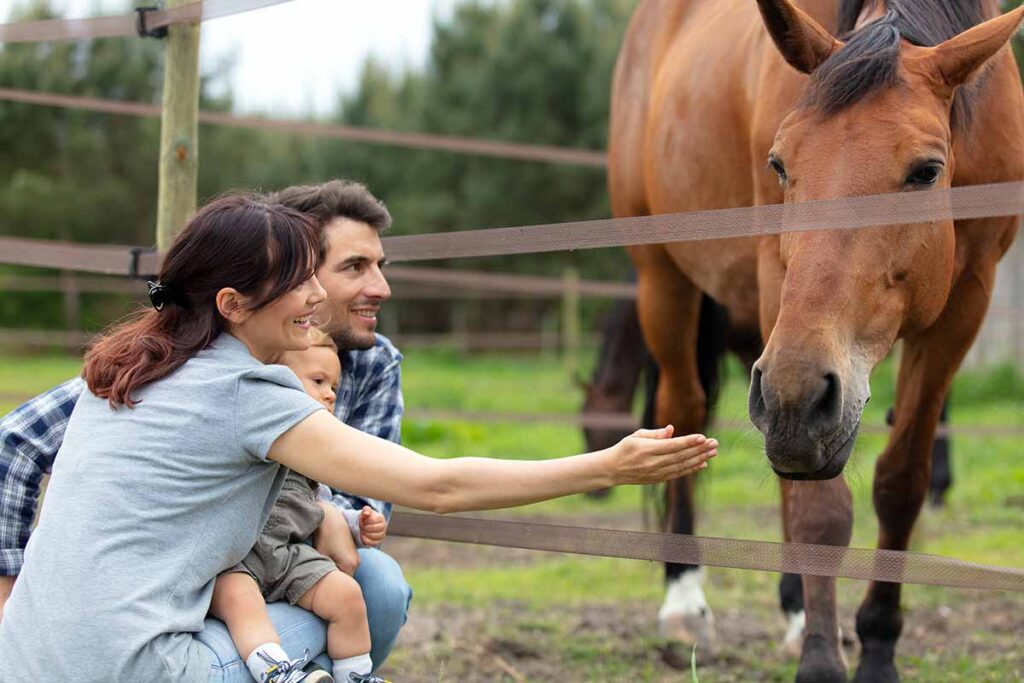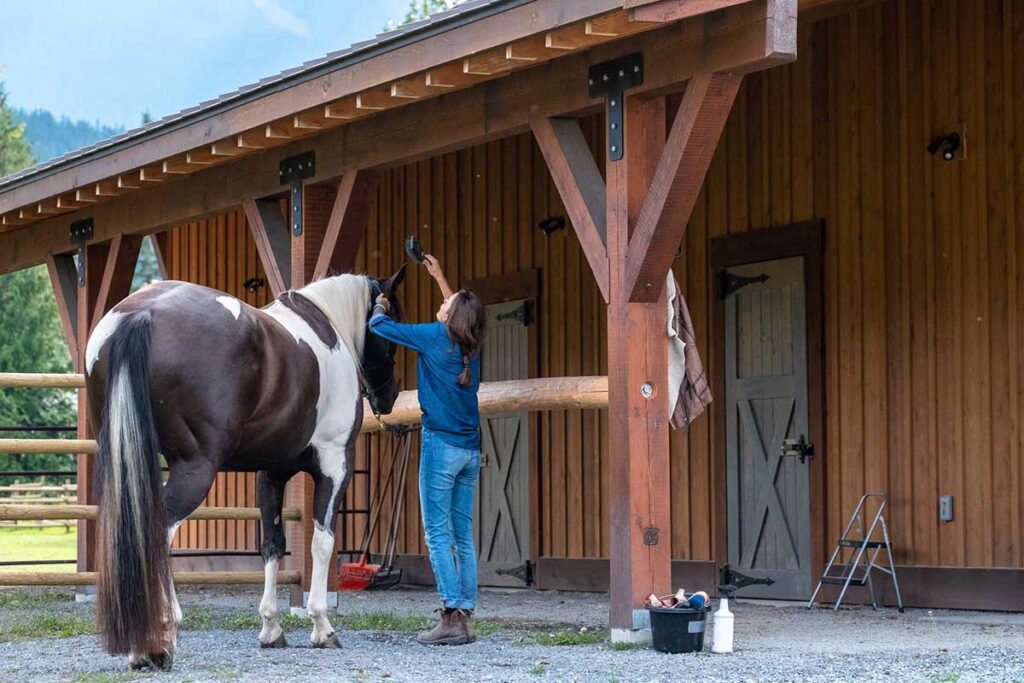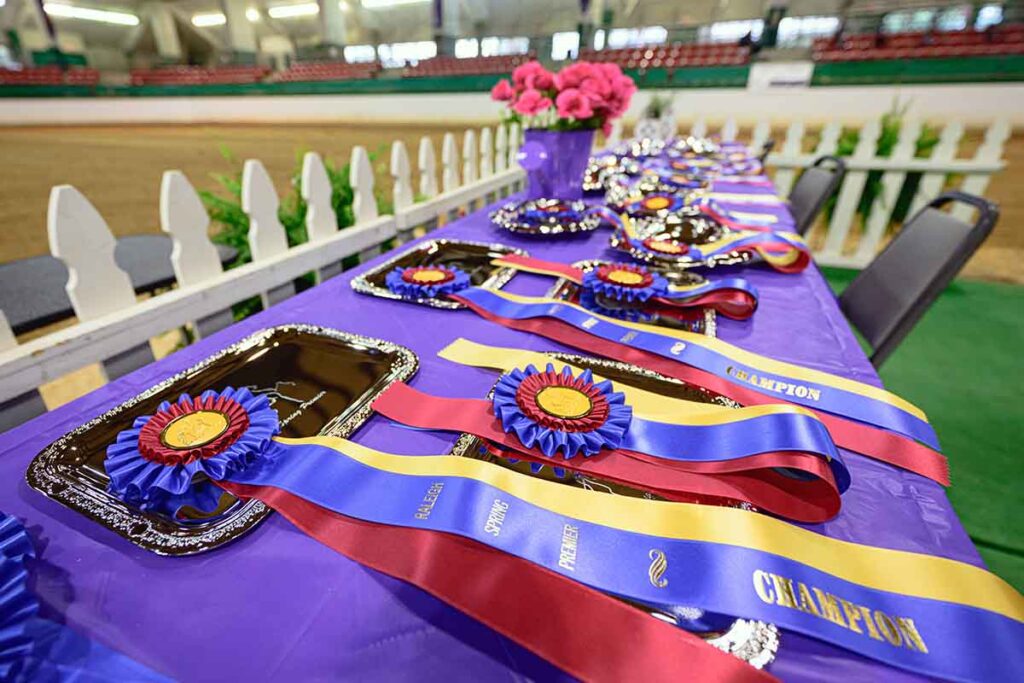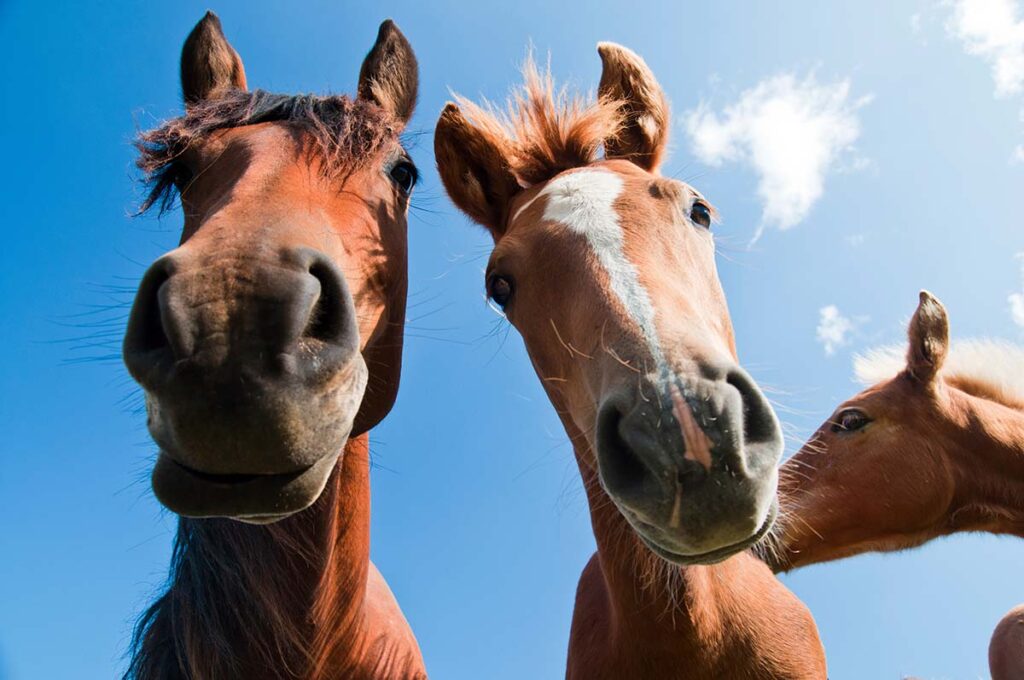Not all horse feeds are created equal. The countless products on the market come with varying forms, ingredients, benefits, quality, and price points. It can be overwhelming to choose the right one for your horse, but an appropriate, well-balanced diet is critical to equine health. In this article, we’ll walk you through the process of selecting the perfect feed for your horse based on his body condition, nutrient needs, workload, and life stage.
Equine Nutrition Basics
Before we dive into choosing the right feed for your horse, it’s important to understand the foundation of equine diets. Horses are herbivores, meaning their digestive system is designed to process high-fiber forage, such as hay and/or pasture. They also have relatively small stomachs for their size, requiring them to consume frequent small meals throughout the day. As such, the horse’s digestive system works best when it has a constant flow of roughage passing through it. Bottom line: Forage should be your horse’s primary food source.
While forage provides many essential nutrients horses need to stay healthy, some horses have higher energy, vitamin, and mineral needs and require a concentrate feed or ration balancer in their diet.
Know Your Horse’s Dietary Needs
Horses have different nutritional needs depending on their age, condition, activity level, and overall health. Consider these factors to determine whether your horse needs supplemental feed and what type:
Body Condition
Body condition score (BCS) is a numerical measure of a horse’s body fat and muscle. Scores range from 1 to 9, with 1 being emaciated and 9 being obese. A horse with a BCS of 4 to 6 is considered to be at a healthy weight. If your horse is underweight (BCS below 4), he will need a feed with more calories to help him gain weight. On the other hand, if your horse is overweight (BCS above 6), he will need a low-calorie feed to maintain a healthy weight.
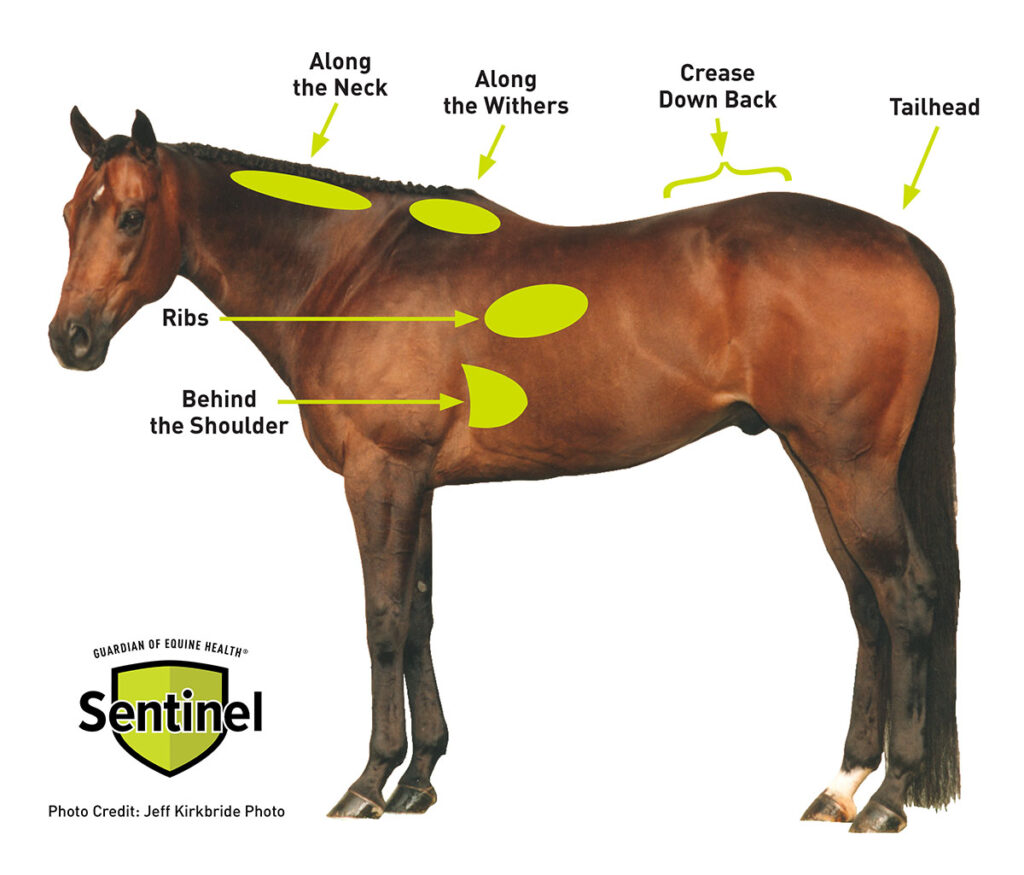
Related Reading: How To Easily Determine Your Horse’s Body Condition Score
Workload
The next step to consider is your horse’s workload, as it will directly affect his energy requirements. A horse with a heavy workload, such as a performance horse, typically requires a higher-energy concentrate feed than a horse with a light workload, such as a pasture ornament or companion.
Life Stage
Just like humans, horses have different nutritional requirements at different stages of their lives. An aging horse might require a feed that is easier to digest, while a growing horse will need a feed that is high in protein to support his growth. Manufacturers formulate their feeds to meet specific horses’ needs. For example, a feed company might produce one feed for performance horses, one for broodmares, and another for seniors.
Health
Horses with certain health conditions require special diets to manage their clinical signs. Examples include equine metabolic syndrome, laminitis, pituitary pars intermedia dysfunction (aka Cushing’s disease), and the muscle disorder known as “tying-up.” Before choosing the right feed, you should have a clear understanding of your horse’s nutritional requirements. If your horse has health issues, talk to your veterinarian or an equine nutritionist to determine the best dietary plan for him.
Choosing a Feed
If you’ve determined your horse needs a concentrate feed in addition to high-quality forage to meet his nutrient needs, follow these steps to choose the right one:
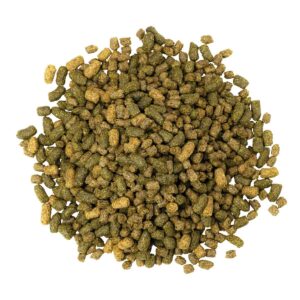
- Select a type. You’ll need to choose between a concentrate mix, a ration balancer, or a complete feed. Commercial concentrate mixes are those designed to meet certain types of horses’ energy and nutrient needs. A ration balancer provides minerals and vitamins without the extra calories. Complete feeds are designed to meet all of a horse’s nutritional needs, without added forage.
- Read the label. Pay attention to the information on a feed’s label, as it will tell you the precise type and class of horse it’s designed for.
- Consider the form. Concentrate feeds come in different forms, including textured, pelleted, and extruded:
- Textured feeds are any combination of grains or other ingredients—pellets, extruded nuggets, molasses, and/or vegetable oil—blended together. They’re great choices for finicky horses, especially when adding loose supplements.
- Pelleted feeds are any combination of ingredients that have been ground, mixed, and subsequently formed into a pellet using heat, moisture, and pressure.
- Extruded feeds are any combination of ingredients that have been ground, mixed, and then conditioned (“cooked”) using heat, steam, and high pressure prior to forcing through a die. The resulting feed product expands upon rapid cooling into a low-density nugget.
- Look for quality. Signs of a high-quality feed include a complete guaranteed analysis and ingredients list on the tag or bag, fixed formulations that list specific ingredients (i.e., avoid collective terms such as “grain byproducts”), and specialized features such as biotics and organic trace minerals, for example. Also understand that when it comes to grain, you get what you pay for.
Once you select a feed product for your horse, introduce it to his diet gradually. Starting with small quantities and increase them in increments over several days or weeks. Abrupt changes in a horse’s diet can lead to digestive issues like colic.
Related Reading: Changing a Horse’s Feed Safely: A Step-by-Step Guide
Take-Home Message
Choosing the right concentrate feed for your horse is an important part of ensuring he has a healthy and balanced diet. Consider all the factors that might impact his nutritional needs, from body condition to life stage. And consult a veterinarian or an equine nutritionist for advice on selecting the appropriate feed.
This article is brought to you by Sentinel Feed.

